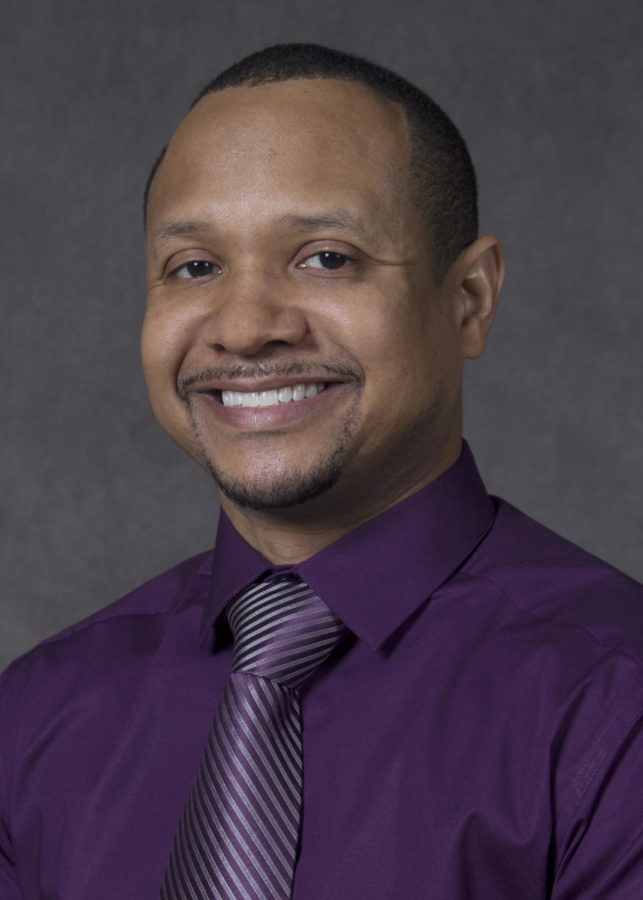Iowa State professor hosts first discussion for ‘Black Lives, Black Stories’ film series
Novotny Lawrence’s research primarily centers on African American cinematic and mediated experiences and pop culture.
September 21, 2020
Ames Public Library and Iowa State Greenlee School of Journalism and Mass Communication hosted the first film discussion of the series “Black Lives, Black Stories” Monday.
The host for the live discussion was Novotny Lawrence, associate professor in the Greenlee School of Journalism and Mass Communication. The first film discussion covered the movie “I Am Not Your Negro,” directed by Raoul Peck.
“I’m going to try and contain myself because I get excited when I speak about things like this, and in particular, it’s because the era in which we currently live, this moment right now, the film we are discussing tonight is very much about where we are today,” Lawrence said to begin the discussion.
Lawrence told the viewers a story of him sharing the movie with his nephew. His nephew told him he had never heard of James Baldwin before.
“I was proud of him for engaging in the movie and truly trying to understand his blackness more, but at the same time, him telling me that at age 24 he had never heard of James Baldwin before made me sad,” Lawrence said. “And the reason for that is it proves how extremely deficient our educational system is, and what I mean by that is we continue to privilege white stories over black ones.”
Lawrence discussed how everyone knows George Washington, but not everyone knows that he owned slaves on his plantation.
“Somehow, it was more important to know George Washington had a cherry tree than that he owned people who looked like me,” Lawrence said.
Lawrence says we as a community need to be less selfish and more selfless.
“Back in April, there were armed protesters who were white outside state houses in states like Michigan and North Carolina, protesting because they wanted COVID restrictions lifted, and they were exalted,” Lawrence said.
“Black Lives Matter protesters, black folks and their white allies and people of other ethnicities take to the streets to protest the murder of George Floyd,” Lawrence said. “The public execution of George Floyd and, later on, the murder of Jacob Blake, and they’re also for people like Breonna Taylor, Ahmaud Arbery, and they are denigrated.”
Lawrence said credit needs to be given to the founders of Black Lives Matter because even though it’s been 155 years since slavery was abolished, Black lives still matter.
“The thing about it is, just treat people with dignity and respect and don’t abuse your authority, and when there are officers that do, you gotta cross that thin blue line and call them out,” Lawrence said.
He said when the discussion of policing arises, it is important to remember the real discussion is about Black Lives Matter and police abusing their authority, and there are both good cops and bad cops.
“Being a cop, you have to ask yourself what kind of cop you want to be, and there will be tremendous pressures,” Lawrence said. “The goal is you have to see and evaluate people for who and what they are, because if you don’t, then they’re “othered,” and when you “other” someone, it’s easy to kneel on the back of their neck for 8 minutes and 43 seconds, because that’s not a person, thats a perp.”







